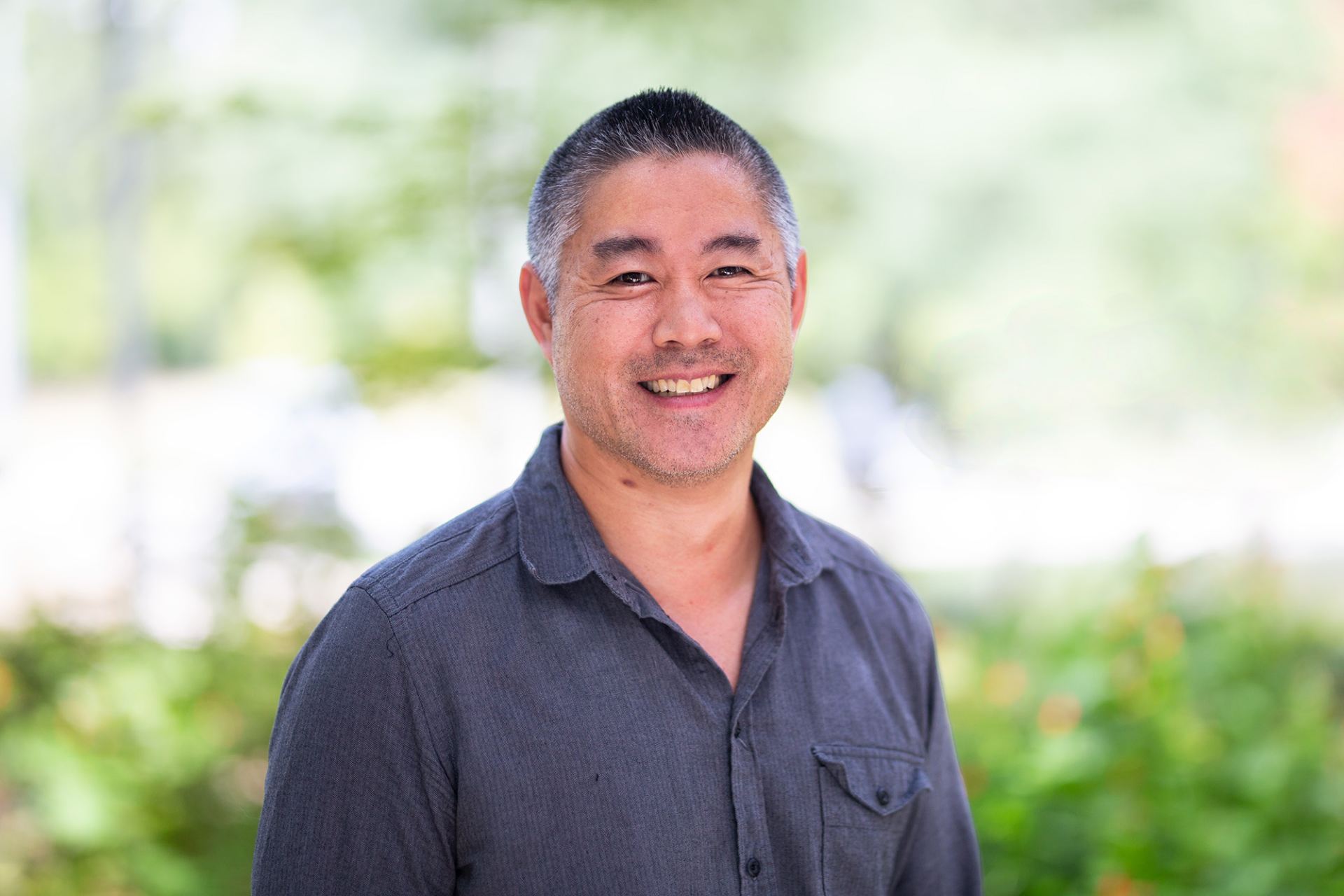New Philosophy Professor Leads Mindful Mission on Mental Health
By: Phil Roth | Sept. 21, 2022

The science of psychiatry and psychology is not always black and white, says Dr. Jonathan Tsou. The new professor of philosophy in the School of Arts, Humanities, and Technology should know; he has made it his mission to help people think carefully about mental disorders.
“I address questions such as whether some kinds of classification for mental disorders are artificial or real, implications for the socially constructed nature of some mental disorders, and practices surrounding psychiatry, such as drug prescriptions,” he said.
Tsou joined The University of Texas at Dallas this fall as the Marvin and Kathleen Stone Distinguished Professor of Humanities in Medicine and Science. He left Iowa State University, where he was a professor of philosophy and received several teaching awards during his 13 years there.
He said attitudes toward mental health have drastically changed over the last couple of decades. He attributes much of that to the rise of social media and to the open way that society now discusses the topic.
There remains, however, a lack of clarity on the nature of mental health disorders, he said.
“I argue that a lot of forms of depression and anxiety are normal human reactions to stress and trauma,” he said. “However, if individuals understand them as diseases rather than as normal responses, that can shape a patient’s own experiences in handling distress.”
Dr. Jonathan Tsou
Title: professor of philosophy, Marvin and Kathleen Stone Distinguished Professor of Humanities in Medicine and Science
Research areas: philosophy of science, philosophy of psychiatry, philosophy of mind/cognitive science, history of 20th-century philosophy of science
Dr. Nils Roemer, dean of the School of Arts, Humanities, and Technology and the Arts, Humanities, and Technology Distinguished University Chair, said UT Dallas is fortunate to have Tsou on campus.
“Jonathan is a leader in the field of philosophy of psychiatry,” said Roemer, who is also director of the Ackerman Center for Holocaust Studies and the Stan and Barbara Rabin Distinguished Professor in Holocaust Studies. “He already has established himself as an excellent teacher and mentor and is an outstanding addition to the University.”
Tsou said UTD’s cross-disciplinary environment was appealing as he considered the move to Texas.
“My research is quite interdisciplinary,” he said. “I try to engage not just with scientific theories of psychiatry, but also in areas such as anthropology, sociology, history and social science.”
Tsou has published several books and a number of articles on the philosophy of medicine and psychiatry and on applied ethics. He published Philosophy of Psychiatry in 2021 and Objectivity in Science: New Perspectives from Science and Technology Studies in 2015.
A member of the editorial advisory board of the journal Philosophy of Medicine, Tsou also serves on the executive council of the Association for the Advancement of Philosophy and Psychiatry. In 2023 he will become a member of the Philosophy of Science Association Governing Board.
“Jonathan is a leader in the field of philosophy of psychiatry. He already has established himself as an excellent teacher and mentor and is an outstanding addition to the University.”
Dr. Nils Roemer, dean of the School of Arts, Humanities, and Technology
Tsou hopes to add programming and grow interest in the Center for Values in Medicine, Science and Technology, which has a mission to understand, evaluate and improve the ethical and cultural influences on and implications of medicine, science and technology.
“I plan to invite scholars from around the world to discuss the kinds of problems we’re seeing in society surrounding health and mental health,” he said. “I hope the center can become a hub for the exploration of the values involved in science and medicine — the pressing issues that we as a society need to address.”
Tsou earned his PhD from The University of Chicago in 2008, his Master of Arts in philosophy from The University of Western Ontario in 2001, and his Bachelor of Arts in philosophy from Simon Fraser University in British Columbia in 2000.
Media Contact: Phil Roth, UT Dallas, 972-883-2193, phil.roth@utdallas.edu, or the Office of Media Relations, UT Dallas, (972) 883-2155, newscenter@utdallas.edu.





